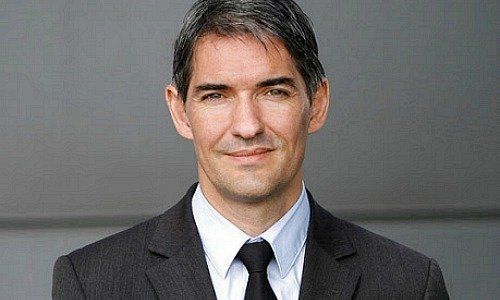Ralph Ebert: «Human Error Is the Biggest Weakness»
Despite the trend toward a digital banking world, compliance will need to find ways of putting the human factor back in focus, says compliance expert Ralph Ebert in an essay for finews.first.
finews.first is a forum for renowned authors specialized on economic and financial topics. The texts are published in both German and English. The publishers of finews.com are responsible for the selection.
No area within the financial services industry has undergone such profound change over the past 15 years as compliance. The fight against money laundering remained a core issue but new ones have sprung up as well, such as the introduction of Mifid guidelines, the U.S.’ FATCA, cross-border regulation as well as issues including the clean money strategy and tax compliance.
These topical changes forced a rethink of the profile for compliance staff. While recruiters previously focused on experts with a high level of expertise, job adverts nowadays show a different picture: compliance staff need specialist skills but also analytical and strategic thinking as well as the capacity to grasp complex connections. In addition to this, they need broad project and management experience, and a deep understanding of the business and its products.
Right now, there’s only a limited supply of this new prototype of a compliance expert. Why? Compliance in financial services grew out of internal legal services: there to implement regulatory requirements and to develop suitable control mechanisms. Typically, the tasks were mainly given to lawyers – namely, to cover the high demand for regulation.
«Costs take center stage against the backdrop of deep restructuring»
Starting in 2005, this model was gradually abandoned as a risk-based approach for the identification and treatment of compliance risks emerged. Nowadays, the main task of compliance is to interpret regulatory demands into firms and to implement the necessary changes and solutions, especially for the business divisions to cooperate with one another.
The main drivers of this were attempts to optimize compliance and every other operative unit as well as to harmonize and streamline procedures and processes. This transformation is still in full swing – both at the big banks as well as at private banks and smaller, domestically-focused finance firms.
Spending increasingly takes center stage against the backdrop of deep restructuring and cost cuts in the entire financial industry. This no longer focused just on reducing compliance resources after projects end: automation and other tech-based solutions are actually accelerating the spending trend.
«Regtech and digitization put profile of compliance staff in doubt»
Unsurprisingly, global banks see a savings potential of 25 to 40 percent over the coming five to ten years using so-called regtech solutions for compliance. In Switzerland alone, there are more than 200 fin- and regtech companies providing a boost in innovation and impetus for the Swiss financial market in general.
The era of regtech solutions, coupled with a general increase in automatization and digitization, raise questions over the role and profile of compliance staff in the future. If forecasts by consultancy firms are to be believed, role of compliance staff will change from being an internal consultant towards a validation office, with upstream automatization processes as well as further out supported by robot technology. Artificial intelligence in particular is viewed as a sort of panacea in this field.
It's too early to make a sensible prediction and to define a timeframe for the implementation of regtech solutions in banking, and the consequences on compliance. However, it is already clear that the cost pressure in times of sustained low margins will quicken this development – provided that the local regulators clearly define the legal framework and expectations.
«Human error is the biggest weakness in the risk defense»
At the same time, compliance is still busy becoming part of a meaningful business culture. The word «culture» requires a foundation of tradition and value models – the very basis which has been missing in compliance for some time. Instead, the reality is constant change, the need to adapt and a quest to find the right strategy.
Against this shift, financial firms need to find solutions and concepts that put the human factor back into the focus of compliance. The insights gleaned from analyzing major corruption cases and banking scandals have shown that the biggest weakness in risk defense is human error. Even the most sophisticated technology, digital processes and refined controls cannot negate this.
Therefore, firms can only win the fight against risks though targeted support of individual compliance staff and their teams as well as improved training opportunities, with an emphasis on digitization and technology. The jury is out on when the financial industry and training centers will be ready to develop and integrate such programs.
Ralph Ebert is a German lawyer. For the past 15 years, he has been working for big as well as private banks as a legal and compliance expert. After stints in Paris, South Korea and Canada, he moved to Switzerland in 2008, first to Geneva and later to Zurich. He also works on global projects for the management of international teams in the integration of regtech solutions.
Previous contributions: Rudi Bogni, Peter Kurer, Oliver Berger, Rolf Banz, Dieter Ruloff, Samuel Gerber, Werner Vogt, Walter Wittmann, Alfred Mettler, Peter Hody, Robert Holzach, Craig Murray, David Zollinger, Arthur Bolliger, Beat Kappeler, Chris Rowe, Stefan Gerlach, Marc Lussy, Nuno Fernandes, Richard Egger, Maurice Pedergnana, Marco Bargel, Steve Hanke, Andreas Britt, Urs Schoettli, Ursula Finsterwald, Stefan Kreuzkamp, Oliver Bussmann, Michael Benz, Peter Hody, Albert Steck, Andreas Britt, Martin Dahinden, Thomas Fedier, Alfred Mettler, Brigitte Strebel, Peter Hody, Mirjam Staub-Bisang, Nicolas Roth, Thorsten Polleit, Kim Iskyan, Stephen Dover, Denise Kenyon-Rouvinez, Christian Dreyer, Kinan Khadam-Al-Jame, Robert Hemmi, Claude Baumann, Anton Affentranger, Yves Mirabaud, Katharina Bart, Frédéric Papp, Hans-Martin Kraus, Gerard Guerdat, Didier Saint-Georges, Mario Bassi, Stephen Thariyan, Dan Steinbock, Rino Borini, Bert Flossbach, Michael Hasenstab, Guido Schilling, Werner E. Rutsch, Dorte Bech Vizard, Adriano B. Lucatelli, Katharina Bart, Maya Bhandari, Jean Tirole, Hans Jakob Roth, Marco Martinelli, Beat Wittmann, Thomas Sutter, Tom King, Werner Peyer, Thomas Kupfer, Peter Kurer, Arturo Bris, Michel Longhini, Frederic Papp, Claudia Kraaz, James Syme, Peter Hody, Claude Baumann, Dennis Larsen and Bernd Kramer.

























